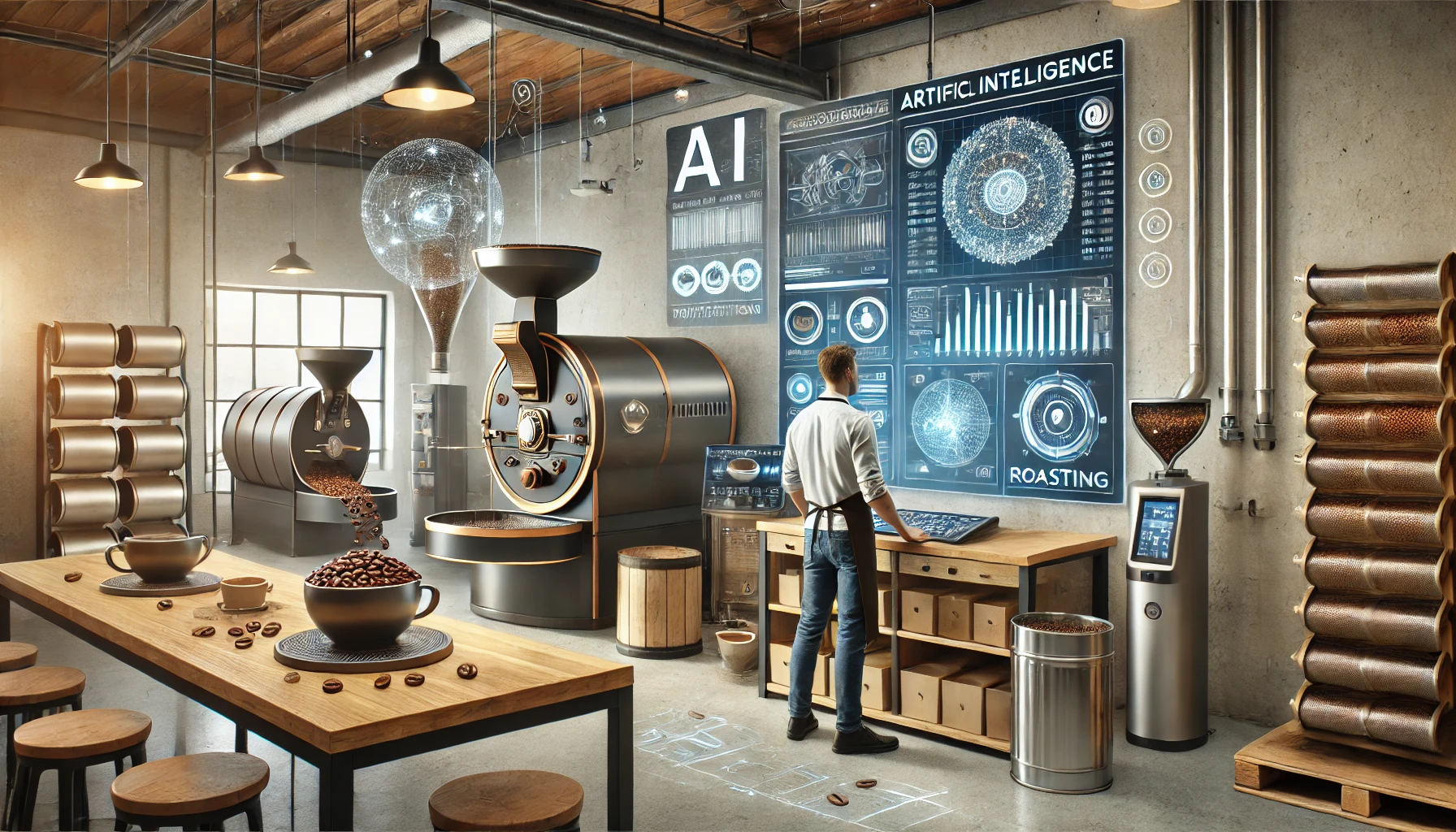Artificial Intelligence (AI) is no longer just a concept for tech giants and Silicon Valley startups—it’s rapidly becoming a game-changer across industries, including one as traditionally hands-on as coffee.
From precision farming and roasting automation to customer personalization and predictive analytics, AI is helping reshape how coffee is grown, processed, served, and consumed.
Whether you’re a grower, roaster, café owner, or coffee lover, understanding AI’s impact could give you a competitive edge in an evolving market. Let’s explore how artificial intelligence is transforming the coffee industry from crop to cup.
AI at the Farm Level: Smarter Coffee Cultivation
Coffee farming, especially in developing countries, has long been at the mercy of unpredictable weather, pest outbreaks, and unstable yields. AI technologies are now enabling data-driven farming decisions that increase productivity, sustainability, and resilience.
1. Crop Health Monitoring
AI-powered drones and satellite imaging are used to monitor coffee plantations in real-time. These tools detect:
- Leaf discoloration (sign of disease)
- Soil moisture levels
- Pest infestations
- Nutrient deficiencies
By analyzing image data through AI models, farmers can detect problems early and act faster—saving crops and reducing chemical overuse.
2. Climate Forecasting & Yield Prediction
With the help of machine learning, AI tools process historical climate patterns, soil data, and rainfall statistics to predict yield outcomes. This allows farmers to plan harvesting, manage labor, and set pricing strategies more accurately.
In a world affected by climate change, this tech is proving vital for smallholder farmers trying to stay afloat.
AI in Coffee Processing and Roasting
1. Smart Roasting Machines
Precision roasting is an art—but even the best roasters rely on consistency, and this is where AI steps in. Machines like Loring and Bellwether integrate AI algorithms that analyze:
- Bean origin
- Moisture content
- Roast color curve
- Temperature patterns
These machines automatically adjust the roast profile in real time to ensure consistency across batches. Even better, they store roast data for repeatability and quality control.
2. Defect Detection
AI-powered optical sorting machines now scan green coffee beans at high speeds, identifying and removing defects (like insect damage or black beans) with remarkable precision—much faster and more accurately than human workers.
AI in the Café: Better Service and Deeper Insights
1. Personalized Customer Experiences
Ever ordered coffee through an app and got recommendations tailored to your taste? That’s AI at work. Machine learning tracks:
- Customer preferences
- Past orders
- Time of day
- Seasonal trends
Baristas or apps can then offer hyper-personalized suggestions—from drinks to loyalty rewards—boosting customer satisfaction and sales.
2. Inventory and Waste Management
AI systems can analyze sales data to predict which drinks will be in demand on a given day or week. This helps reduce overstocking of milk, syrups, and beans, cutting down on waste.
Cafés can also use AI to:
- Forecast staffing needs
- Monitor equipment health
- Detect inefficiencies in workflow
This makes operations smoother and more profitable.
AI in Coffee Retail & E-Commerce
1. Recommendation Engines
Online coffee retailers use AI to recommend products based on a customer’s:
- Browsing history
- Taste preferences
- Purchase behavior
This Amazon-style approach increases average cart value and enhances user experience.
2. Smart Chatbots for Customer Support
AI-driven chatbots can answer questions about brewing methods, coffee origins, subscriptions, and more—24/7. They handle volume efficiently and provide consistent support without human burnout.
AI and Sustainability in Coffee
AI also plays a role in tackling one of the industry’s biggest concerns: sustainability.
1. Carbon Footprint Tracking
Startups are using AI to measure and track the carbon emissions of coffee supply chains—from farm to cup. This data helps businesses set sustainability benchmarks, optimize logistics, and reduce environmental impact.
2. Supply Chain Transparency
Blockchain combined with AI is offering new levels of traceability. Each batch of coffee can be tracked from its origin using digital tokens, ensuring ethical sourcing and reducing fraud in certifications.
Real-World Examples of AI in Coffee
- Demetria: A startup using AI to analyze the chemical fingerprint of green coffee, allowing quality evaluation without traditional cupping.
- Connecterra: Provides AI-driven insights for farmers, helping optimize yield and disease prevention.
- BeanAI: A retail analytics tool that maps customer coffee behavior and helps brands refine product positioning.
- Roastpath by Mill City Roasters: Offers AI-assisted roast profile management for consistent batch-to-batch results.
Challenges and Limitations
While AI brings incredible promise, there are some hurdles:
1. Accessibility for Small Farmers
Many producers can’t afford AI tech, especially in regions with limited internet access or education. Bridging this gap requires partnerships and funding.
2. Data Privacy Concerns
With smart tech collecting user data, ethical handling and GDPR compliance are essential.
3. Job Displacement Worries
Automation could reduce certain manual jobs. The key will be retraining workers for tech-assisted roles rather than removing them from the process entirely.
The Human + AI Future of Coffee
Despite its capabilities, AI is not here to replace human expertise—it’s here to augment it. Great coffee still requires sensory skills, creativity, and human connection. What AI brings is:
- Efficiency
- Consistency
- Insight
Imagine a world where a barista can use AI to perfect a roast, a farmer gets a pest warning before an outbreak, and customers enjoy coffee that’s customized to their mood—all powered by silent algorithms working in the background.
Final Brew: Why AI Matters in Coffee’s Future
Artificial intelligence is quietly becoming one of the most transformative forces in the coffee industry. It enhances quality, supports sustainability, and empowers decision-making across the supply chain.
For those who embrace it, AI offers a competitive advantage and a path to a smarter, more resilient coffee future. Whether you’re pouring espresso or planting seeds, now is the time to understand and harness the power of this technology.
The fourth wave of coffee is here—and it speaks machine.
